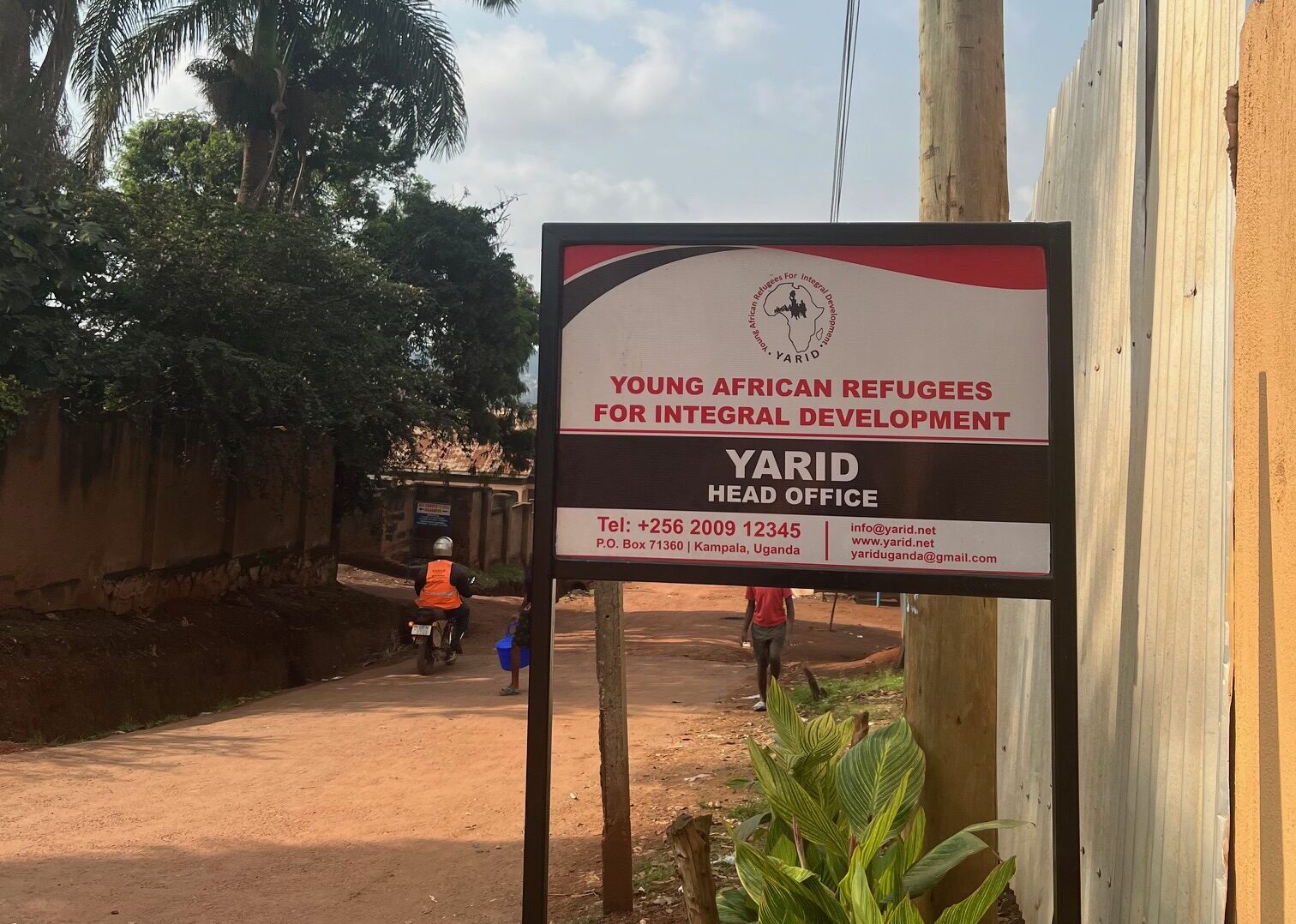Carmen Logie and her research team receive a 2024 Impact Award at the International AIDS Conference
Categories: Awards & Recognition, Carmen Logie, Research
Poverty, violence and disrupted social networks increase vulnerability to HIV among refugee youth, while those same barriers – plus stigma – can prevent them from getting tested for the virus. In 2023, Carmen Logie and her team published on a promising approach to increasing HIV testing in this marginalized population: the use of self-tests.
“Our research shows that refugee youth can and will use HIV self-testing when it’s provided,” says Logie, a professor in the Factor-Inwentash Faculty of Social Work and the lead researcher on the CIHR-funded trial, which took place in informal settlements in Kampala, Uganda. “They even asked for extra tests to share with their communities.”
On a large scale, the expansion of HIV self-testing can contribute to global efforts to reach the Joint United Nations Programme on HIV/AIDS (UNAIDS) goal of having 95 per cent of people know their HIV status. In recognition of their work, Logie and her research team were awarded one of three 2024 Impact Awards from the Journal of the International AIDS Society at the International AIDS Conference, the world’s largest conference on HIV and AIDS.
Logie has been working in collaboration with community-based organizations in Uganda since 2017, exploring issues around HIV vulnerability, stigma, mental health and sexual violence in both formal refugee settlements and informal urban settings. Uganda hosts the largest number of refugees in Africa, nearly 1.7 million, and more than 107,000 of Uganda’s refugees live in Kampala, where HIV prevalence is disproportionately high.
Despite this high prevalence, HIV testing research has largely excluded urban refugee youth, says Logie. To address the gap, her study randomized 450 participants aged 16 to 24 into three groups: one received HIV self-tests, one received the tests and a mobile health intervention involving two-way texting support, and one received no intervention other than information about local clinics offering HIV testing.

Pictured above: Trained peer health navigators who provided support to study participants in Professor Logie’s HIV self-testing study with refugee adolescents in Kampala, Uganda. The group is pictured with Carmen Logie (third from right) and co-investigator and FIFSW alumnus Moses Okumu, assistant professor, University of Illinois Urbana-Champaign
At the beginning of the study, about 30 per cent of participants in each group had taken some kind of HIV test in the past year. Eight months later, HIV testing uptake rose substantially to more than 90 per cent in both intervention groups. Yet participants who only received self-tests said they felt more stigma related to HIV and adolescent sexual and reproductive health than before the study. In the group that also received supportive texts from trained peer health navigators, however, the participants reported reduced feelings of stigma related to adolescent sexual and reproductive health than at baseline.
“The mobile health piece simply involved the participants receiving a text once a week saying, ‘How are you?” says Logie, who is the Canada Research Chair in Global Health Equity and Social Justice with Marginalized Populations. “If the participants texted back that they weren’t doing well, or they didn’t text back, the peer navigators would text to offer appropriate support. These navigators had training in stigma reduction and psychological first aid, but they also just offered a regular, non-judgmental check-in with someone who cared, and they built relationships.”
This reduced stigma was exciting to the researchers because stigma can also prevent those who test positive for HIV from getting confirmatory tests and appropriate care. “HIV self-testing has revolutionized access to HIV testing, especially for young people, by offering privacy and convenience, and reducing potentially stigmatizing interactions with family, friends and healthcare workers,” says Logie. “But this study demonstrates that we need to offer some kind of additional support if we provide self-tests so that people will take the next important steps, if needed. The texting seemed to help participants navigate their experiences or worries about stigma and isolation.”
Beyond this study, Logie’s work has helped illuminate how stigma can be a powerful barrier to sexual and reproductive health, particularly in HIV prevention and care. To overcome this barrier, she collaborates on guideline development with the World Health Organization to advance self-care interventions (such as HIV self-testing), including in humanitarian settings.
Her newest research is aiming to assess the feasibility of HIV self-testing in refugee youth with the greatest HIV vulnerabilities, such as sex workers and those that experience sexual violence, and live in informal refugee settlements. “We have the proof of concept, and now we want to go further,” says Logie. “There are 117 million people displaced worldwide, and HIV self-testing embedded with stigma-reducing support could be part of a standard sexual and reproductive health toolkit in humanitarian settings.”
By Megan Easton
Related news:
- Now on YouTube: Carmen Logie highlights the connection between climate change and sexual health
- World Water Day: Carmen Logie’s research highlights the relationship between water insecurity and mental health
- Carmen Logie selected as a delegate for the 2024 Science Meets Parliament program
- New song and music video launched on World AIDS Day highlights the importance of centering places of joy and reducing stigma for communities impacted by HIV